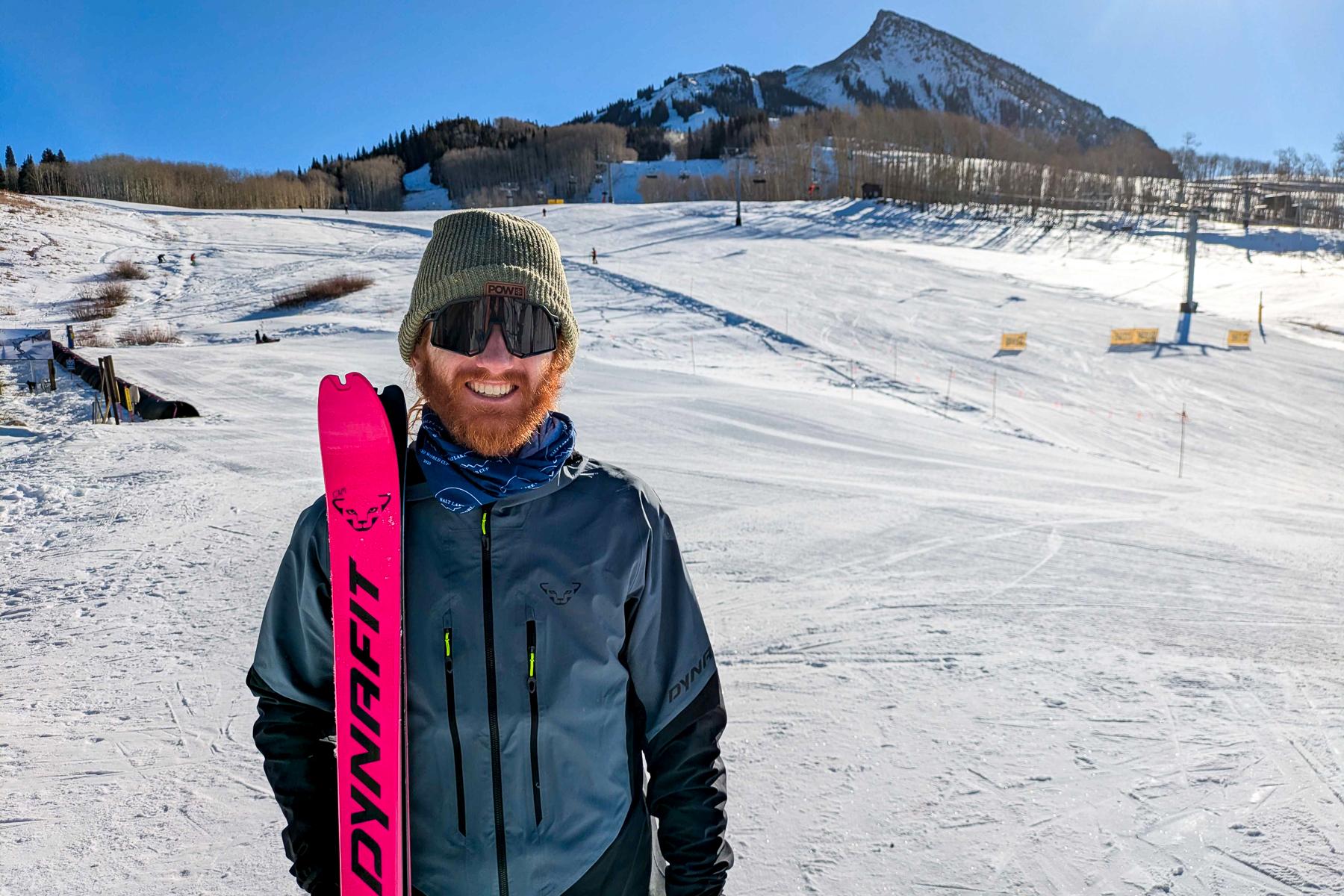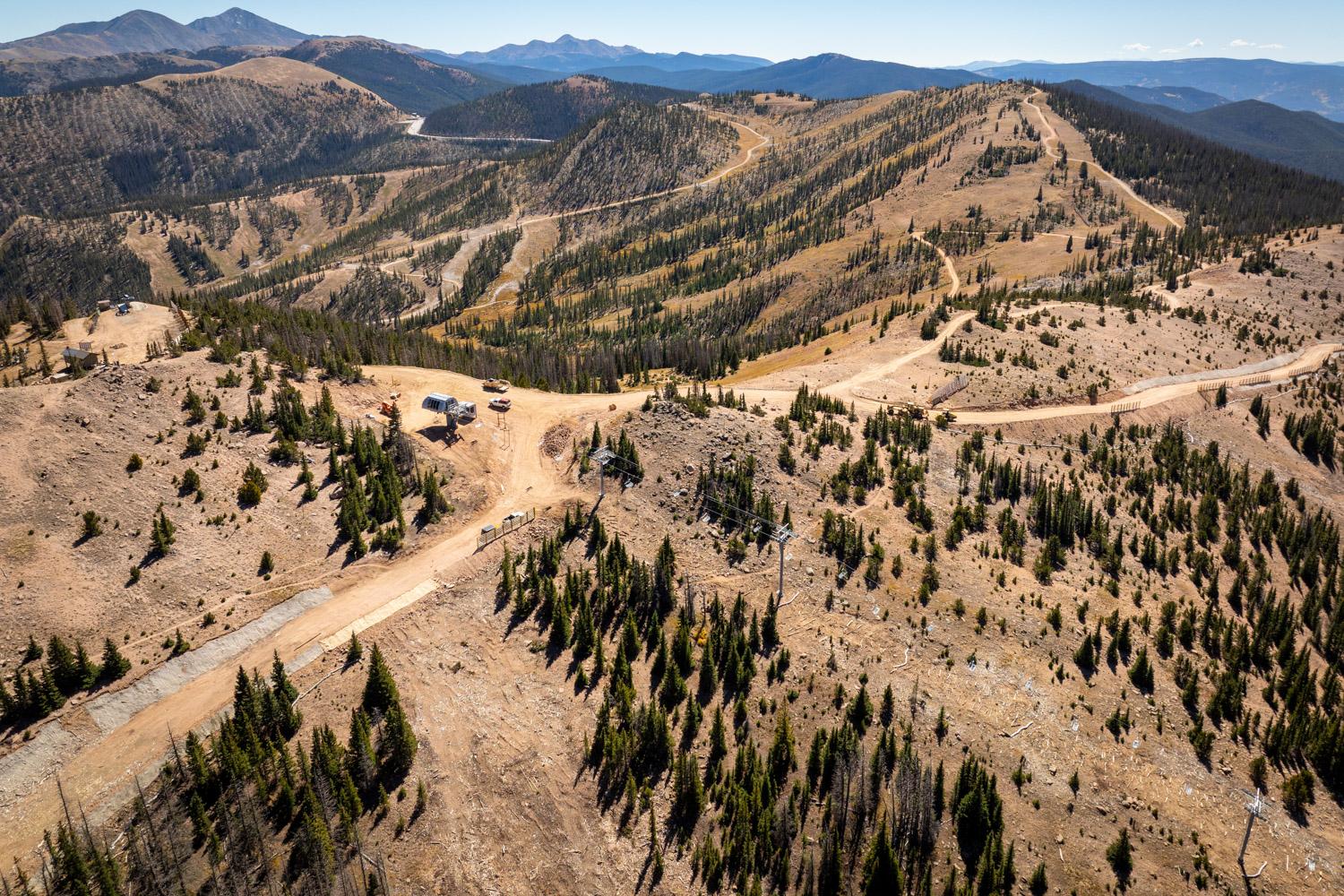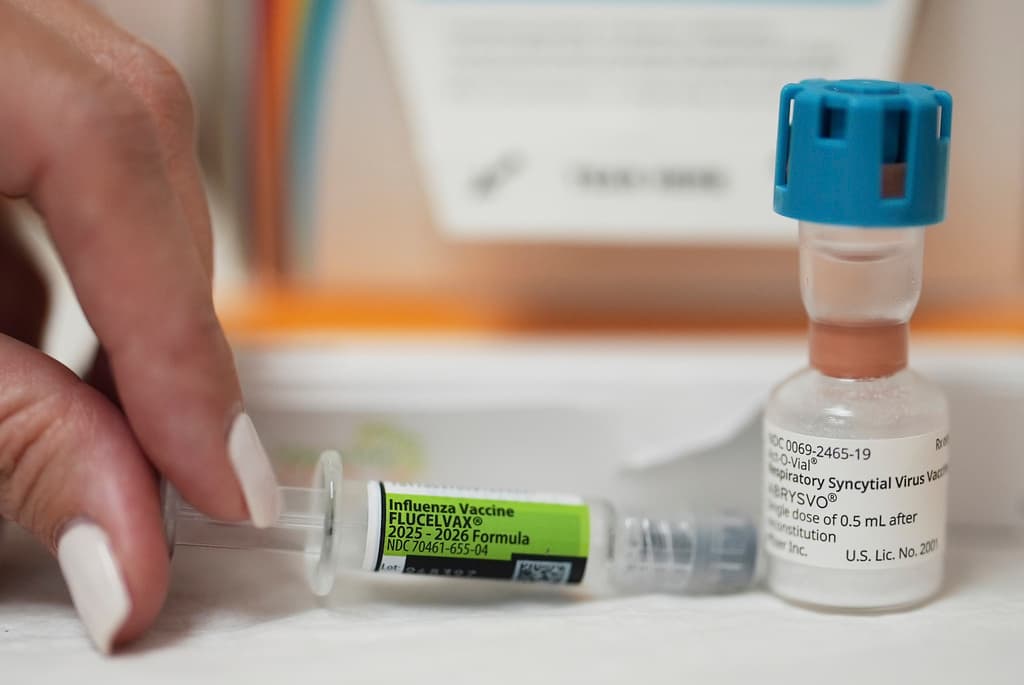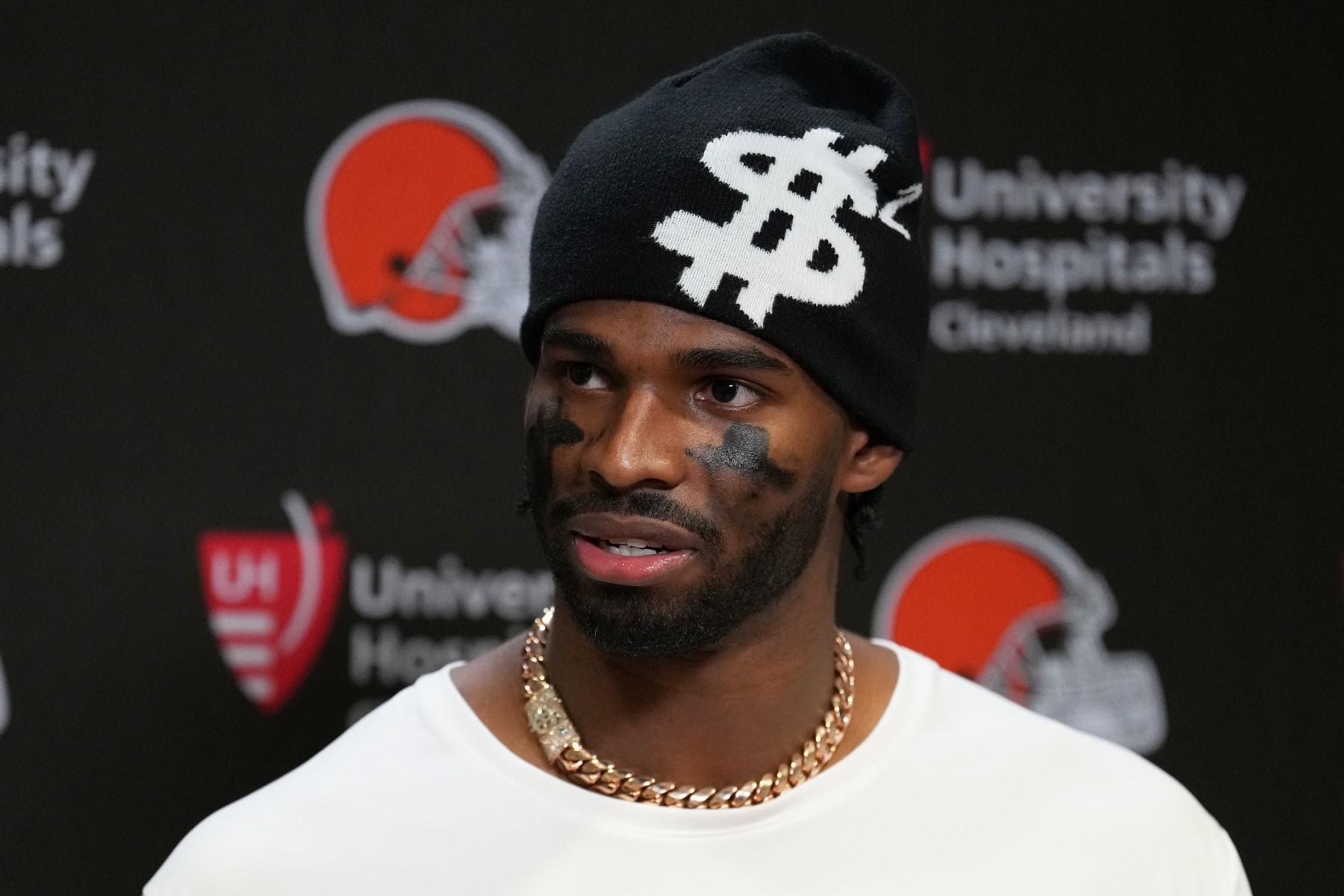
 There is serious movement at some state Capitols on gun legislation right now, after the mass shooting at Marjory Stoneman Douglas High School in Florida two weeks ago. The debate goes beyond limiting access to firearms; some state lawmakers want expanded gun access and training for teachers and staff in schools. In Colorado, state Rep. Patrick Neville of Jefferson County is one of them.
There is serious movement at some state Capitols on gun legislation right now, after the mass shooting at Marjory Stoneman Douglas High School in Florida two weeks ago. The debate goes beyond limiting access to firearms; some state lawmakers want expanded gun access and training for teachers and staff in schools. In Colorado, state Rep. Patrick Neville of Jefferson County is one of them.
In Neville’s case, he’s drawn national attention because he’s also a survivor of the mass shooting at Columbine High School in 1999. Two of the victims were Neville’s friends. One of them, Danny Mauser, was his lab partner, and Mauser’s dad Tom is now a leading gun control advocate.
Every year since Neville was elected in 2014, he’s introduced a bill to allow concealed carry on school grounds. He tells Colorado Matters why he thinks more access to guns, including in schools, is the right way to prevent the kinds of atrocities we saw in Florida. And he disputes the idea that having more guns in schools, whether through trained teachers or more security personnel, makes schools more dangerous.
Interview Highlights With Rep. Patrick Neville
On why he wants to expand gun access in schools:
"I think the current policy that we have, and I've felt this way for quite a long time as a former Columbine student, just invites these heinous acts where actually I think the criminals look for these locations, because they know they're going to go unopposed."
On giving schools flexibility to allow concealed firearms:
"There would no longer be the criminal offense that it is right now, but the districts, through their own policies and procedures, could add training before allowing their employees to, just like any other private company does now, or quite frankly our private schools are doing right now. ... there's a slight bit of flexibility now, but there's problems when you actually have to change a contract. There's some costs involved as well. I'm looking right now, there's a private school in my district actually who's already doing this, and since they're a private school, they're not bound by the same restrictions. What they've actually done is brought in former Navy SEALs to actually come in and do some very advanced training with some of the teachers who are willing and able to do this."
Disputing the idea that more guns leads to more violence:
"Utah's had this for over 10 years, and we haven't seen many issues. There was one small incident with negligent discharge in a bathroom where no one was hurt, thank goodness, but that's been the only issue. Meanwhile it sent a strong deterrent. I don't think we've seen any mass shootings in our schools in Utah, because the criminals know that they're not going to go in there unopposed, and that's the biggest thing I think this bill is going to accomplish. It'll be a deterrent more than anything that folks are going to stop targeting our young kids in schools.
... I know in my school, at Columbine, they waited until the uniformed officer was away at lunch, but they knew who that person was and kind of took precautions to avoid him. Where if you have a group of teachers, and you have no clue who's even one of those who are willing and able to concealed carry, it gives them a real advantage during such an attack."
Read The Full Transcript
Ryan Warner: This is Colorado Matters from CPR News. I'm Ryan Warner. In contrast to Congress, there is some serious movement at state capitols on gun legislation right now. This week, we're talking about a few ideas here in Colorado. Our first guest today is a Columbine survivor, who thinks the state can help prevent mass shootings. But, he's not for more gun control. He wants to expand gun rights. Republican State Representative Patrick Neville is from Jefferson County, and is the House Minority Leader. He's with us from the Capitol, and welcome to the program. Patrick Neville: Hey, thanks for having me. RW: Every year since you were elected in 2014, you've introduced a bill to allow concealed carry on school grounds. Why do you think more access to guns, including in schools, is the right way to prevent the kinds of atrocities we saw in Florida? RW: As you see it, schools are sitting ducks, and yet we know that there are school resource officers for instance, who are armed. Let's be clear that there are people with guns on schools throughout Colorado, even as we speak, correct? PN: There are in some locations, but there's a lot of problems and issues with the way the law is written now that really restricts the flexibility of the districts to do what they need to do. RW: Your bill was quashed by Democrats. I imagine you'll bring it back for a fifth time next year. Let's do clarify what you'd like to see happen. This is not a requirement, that every teacher carry a gun. What does it mean to say that you want to give districts more flexibility? PN: Ryan, some school districts might want to add training, or might want to restrict it through terms of employment. There would no longer be the criminal offense that it is right now, but the districts, through their own policies and procedures, could add training before allowing their employees to, just like any other private company does now, or quite frankly our private schools are doing right now. RW: I read about a district in El Paso County, for instance, that is interested in training teachers to carry, and I think they have to designate them as special security officers. So there's some flexibility in the law for this right now, correct? And you're just hoping to expand that? PN: Yeah, there's a slight bit of flexibility now, but there's problems when you actually have to change a contract. There's some costs involved as well. I'm looking right now, there's a private school in my district actually who's already doing this, and since they're a private school, they're not bound by the same restrictions. What they've actually done is brought in former Navy SEALs to actually come in and do some very advanced training with some of the teachers who are willing and able to do this. RW: And yet, one thing we know about guns is that their mere presence can increase the likelihood that those around that gun, are injured or killed by it, whether by accident, or by suicide. I think of that especially, with kids, suicide. To add to the equation there, in Florida, a good guy with a gun, you know, did nothing to help stop the active shooter. Are you making schools more dangerous by putting more guns on campus? PN: No, absolutely not. Actually Utah's had this for over 10 years, and we haven't seen many issues. There was one small incident with negligent discharge in a bathroom where no one was hurt, thank goodness, but that's been the only issue. Meanwhile it sent a strong deterrent. I don't think we've seen any mass shootings in our schools in Utah, because the criminals know that they're not going to go in there unopposed, and that's the biggest thing I think this bill is going to accomplish. It'll be a deterrent more than anything that folks are going to stop targeting our young kids in schools. RW: That's interesting. You say it's a deterrent. So it's, in a way, being able to say, "People in this school may be armed. Don't even try it." PN: Yeah, and the other thing too when we talk about concealed carry too, it actually gives a big advantage to them. The example you gave in Florida, it's one thing to actually, you know, be a uniformed officer in a school. I know in my school, at Columbine, they waited until the uniformed officer was away at lunch, but they knew who that person was and kind of took precautions to avoid him. Where if you have a group of teachers, and you have no clue who's even one of those who are willing and able to concealed carry, it gives them a real advantage during such an attack. RW: Tell me more about how your experience at Columbine led you to this view. PN: Ryan, I mean, for me, I just remember the days and weeks afterwards pretty vividly. I remember seeing my long time friend's father, at the elementary school we rallied after, and he was frantically looking for his son, and never did find his son. Going to his house afterwards, and seeing the pain in his eyes, and seeing that everything they dealt with was just, I mean, absolutely awful. I remember even myself, sitting in class afterwards, and being asked to be broken up into groups, and realizing the group that I had was no longer existent because one of the student's was killed, and another student was still in the hospital. For me, I just, I never want to experience that pain now as a father with kids in school. I never want to experience that pain that those fathers and other parents experienced. I certainly don't want my kids to have to go through all the things that I went through. I mean, I've even had experiences where folks who are now teaching my kids said, "I would be willing to do this, and I'd be able, and I'd go through training to do this." They support it. I mean, that kind of gives me hope that maybe one day, my kids will be protected as well. RW: Was there anything specifically about that day at Columbine High, that led you either broaden your position on guns, or this legislation in particular? PN: As a 15-year-old kid, it wasn't like I was really thinking that far ahead, but my opinions on this issue really solidified when I was sitting in college, and I'd actually gone through the training to obtain my own conceal carry permit at the time. That's when it really solidified in my mind that we needed to do something to allow good people who have gone through the background checks, they've gone through the fingerprinting, they've gone through the training to actually allow them to be able to defend themselves and our other students. RW: And yet, teacher's groups around the country have said that bringing more guns into schools isn't the answer. Yes, there are some individual teachers who will disagree, but more often, we've heard, "No thanks." Same thing we're hearing from the students in Florida. So with all due respect, why do you think you know better than the people who are in schools every day, saying they don't want this? PN: Well, I think you're lumping them all into a large category, and there's obviously politics involved in there. A lot of these teacher organizations are definitely affiliated with a lot of these different Democratic groups, but I will say this; I've had thousands and thousands of emails and many of them from teachers, who would be willing to do this. Even more support from parents and other folks, too, and I think we need to also be concerned about our parents, and what they want, and a bunch of other students as well. I mean, there's no one magic group that speaks for everyone. And I, there's so many different groups out there, too, that have reached out to me that said, "We'll provide additional training for free." RW: You talk about the politics of this and how you see, for instance, teachers' unions weighing in. I want to talk about your own politics. Your family is closely tied with the advocacy group, Rocky Mountain Gun Owners. Your first campaign got a $2,000 donation from that group. They're very quick to react to any sniff of gun control efforts. I know you've heard the criticism before that, "You are doing what Rocky Mountain Gun Owners wants at the capitol." What do you say to that? PN: I mean that's totally bogus. I remember supporting this policy when I was a college student, and if there was one place that I really wanted to be protected, it was sitting in a classroom. But at the time, that was, even our college campuses were gun-free zones, so some of these other groups have worked to repeal that, and it's something that I believed long before I decided to run for office. RW: You're listening to Colorado Matters. I'm Ryan Warner, and this is a conversation with Republican State Representative Patrick Neville of Jefferson County. He is a survivor of the shooting at Columbine High School and for many years now at the legislature, he has introduced legislation, albeit unsuccessful, to give districts mo e flexibility to arm their staffs, that could include teachers and I want to talk about some of the ins and outs of what that might look like. It's interesting that some of the other survivors from Columbine were parents who lost their kids, have become very vocal advocates for more gun control. That includes Tom Mauser, whose son you knew in school. He has testified against your bills to allow more guns in schools, and he says that even if you put aside the philosophical opposition to the idea, he just has a lot of practical concerns. [Voice of Tom Mauser: If they draw their weapons and police arrive, the police don't know who the good guys are. Another major issue here is can you really provide enough training to these teachers to handle the many different kinds of situations they could be in so that they don't make things worse. There's the question of, "Could a teacher be sued who was armed for failing to act?" Or maybe not so much sued, but chastised because they didn't arm themselves to protect students.] RW: A lot to unpack there. I guess first off, this idea that if you've got a teacher or some other school staffer with a gun, doesn't it make it imminently more difficult for law enforcement to distinguish, "Who's doing the shooting? Who's the bad guy? Who's the good guy?" PN: No, it doesn't. There's actually, I had a stack of papers when I was presenting this bill that it was probably about over 30 instances where people with concealed carry actually prevented mass shootings. There's actually one case in particular where two people who were concealed and carrying acted on a mass shooter, and in those two, even amongst themselves didn't start shooting each other. Usually these are over in a matter of seconds, if not minutes, and anyone who has concealed carry knows that after the threat is gone, you holster it and usually the police come in. We just haven't seen these kind of Wild West scenarios that the people who are anti-gun always paint. We just haven't seen them. RW: Would you hope that schools would institute more than the basic concealed carry training if they, indeed, arm teachers? PN: Yes, I would and I think most schools would. I just don't want to mandate a cookie-cutter one-size-fits-all, because each school is exactly, I mean, is totally different so I'd rather leave that up to them. RW: You had mentioned earlier that there had been offers for free training to school staff, assuming that that's not necessarily going to be the case everywhere, schools in Colorado are already pinching pennies. PN: Yeah, they are, and that's why there is no requirement, and this just gives them more flexibility. Quite frankly, too, it's not just teachers. It could be a janitor, or even maybe someone who is a retired police officer that wants to come in and volunteer, or a retired veteran who wants to come in and volunteer, but these schools could actually work with those folks and develop good policies and procedures and outcomes, and they would give them that total flexibility. There's no requirement in the bill to make them do anything, or make them spend any type of money. RW: How do you picture this going down for a teacher? So it strikes me that a teacher's first order of business is to protect the kids, to get them down, to get the door locked. In what order does the shooting of the suspect, of the assailant, happen? PN: Right, so if you look at, Jenn Thompson came and spoke and she was actually stuck in a classroom for hours and hours with Mr. Sanders at Columbine, and I think that scenario is kind of what we're looking at here. The shooters were trying to bust into the doors, and using bombs, and trying to shoot through the doors, so I think the first order of business for any teacher would be to actually protect their students and kind of gather them around like they do now in some of these drills. And then lock the door, but if someone breaks through the door, then what? That's what really freaks me out with my kids in hearing what the drills they go through and everything. Someone breaks through the door, then what? And that's where I think the teacher can actually engage, and that's where the teacher would have a huge advantage, because they would be trained on that one little specific area, and if that crazed lunatic comes walking through, then it would be actually relatively easy to take him out. And I would just rather give them that ability rather than just leave them totally unarmed and totally vulnerable. RW: What about the possibility a teacher shoots an innocent student? PN: It's a possibility, but we haven't seen it in the different concealed carry scenarios that played out. Like I said, there was about, I mean there's been over 30, there's probably even more out there, but we haven't seen it. RW: There are two memes going around the internet right now that I can't get out of my head, as we talk about arming teachers. I'd just like to present them to you. One comes from an activist in Florida. "If a gunman can walk onto a military base like Fort Hood with 100 percent of the populace highly trained in firearms use, and still murder 13 people with a pistol, do you honestly think that 20 percent of teachers having a gun is going to stop the next killer who may have an AR-15?" The other thing that I've seen is an image of the late president Ronald Reagan surrounded by people with guns, and yet was still shot. Are you over-stating the abilities, the efficacy of people who are not full-time law enforcement officers? PN: No, I'm not. I think there are good people that'd be ready to protect our students, and the first meme that you bring up is, in particular, interesting because Fort Hood was a gun-free zone. The fact of the matter is I've been through the military. The military installations do not allow privately concealed carry on the military installations. They don't allow it, so all those people might have been highly trained, but they were themselves, not allowed to protect themselves. Yes, there's times that people are still shot when they're surrounded by security, but guess what? They still surround themselves by strong security because it's still a great preventative measure and it is a big deterrent. RW: Patrick Neville, do you have any misgivings, any reservations, any concerns about having more guns in schools? PN: You know I don’t. It's quite the opposite. I have more misgivings that we are just sending a message that we are not going to do anything, take any real steps to stop these from continuing to happen because we continue this policy that just invites these folks to come in and do this. And we owe it better to our kids to change that and actually defend them. RW: Representative, thank you for your time. PN: Thank you. |









